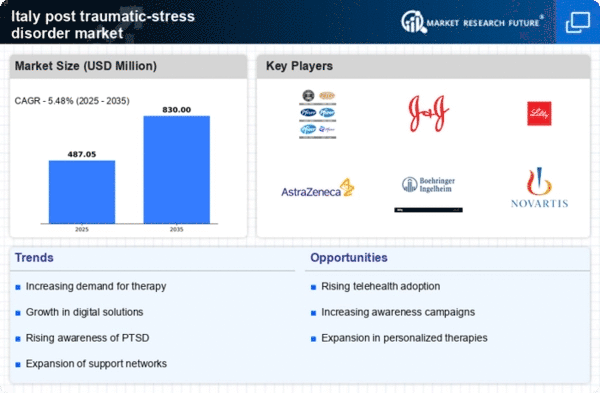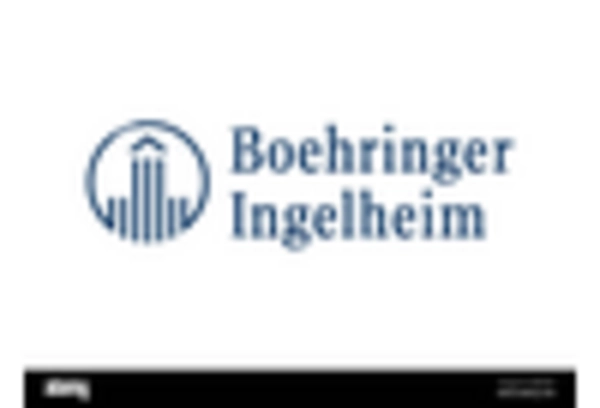Rising Incidence of Trauma
The increasing incidence of trauma-related events in Italy appears to be a significant driver for the post traumatic-stress-disorder market. Factors such as natural disasters, accidents, and violent incidents contribute to a heightened awareness of PTSD. According to recent statistics, approximately 10% of individuals exposed to traumatic events may develop PTSD, indicating a substantial potential patient population. This rising incidence necessitates the development of effective treatment options and support services, thereby expanding the market. Furthermore, the Italian healthcare system is increasingly recognizing the need for specialized care for trauma survivors, which may lead to increased funding and resources allocated to the post traumatic-stress-disorder market.
Government Initiatives and Funding
Government initiatives aimed at mental health improvement are likely to bolster the post traumatic-stress-disorder market in Italy. Recent policies have focused on enhancing mental health services, with an emphasis on PTSD treatment. The Italian government has allocated approximately €200 million for mental health programs, which includes funding for PTSD research and treatment facilities. Such financial support is crucial for developing innovative therapies and increasing accessibility for patients. Additionally, public awareness campaigns funded by the government may further destigmatize PTSD, encouraging individuals to seek help and thereby expanding the market. This proactive approach indicates a commitment to addressing mental health issues, which could lead to a more robust post traumatic-stress-disorder market.
Growing Public Awareness and Advocacy
Public awareness and advocacy for mental health issues, particularly PTSD, are on the rise in Italy. Advocacy groups are actively working to educate the public about the symptoms and effects of PTSD, which may lead to increased diagnosis and treatment. Surveys indicate that approximately 60% of Italians are now aware of PTSD and its implications, compared to only 30% a decade ago. This growing awareness is likely to encourage individuals to seek help, thereby expanding the patient population within the post traumatic-stress-disorder market. Additionally, increased media coverage and community events focused on mental health may further promote understanding and support for those affected by PTSD.
Technological Advancements in Treatment
Technological advancements in treatment methodologies are transforming the post traumatic-stress-disorder market. Innovations such as teletherapy and virtual reality exposure therapy are gaining traction in Italy, providing new avenues for treatment. Teletherapy, in particular, has shown promise in increasing access to care, especially in rural areas where mental health professionals may be scarce. The integration of technology into treatment protocols may enhance patient engagement and outcomes, potentially leading to a larger patient base. Furthermore, the market for digital mental health solutions is projected to grow by approximately 25% annually, indicating a shift towards more accessible and effective treatment options for PTSD.
Increased Collaboration Among Stakeholders
The post traumatic-stress-disorder market is experiencing increased collaboration among various stakeholders, including healthcare providers, non-profit organizations, and government agencies. This collaborative approach aims to create a comprehensive support system for individuals affected by PTSD. By pooling resources and expertise, stakeholders can develop more effective treatment programs and outreach initiatives. For instance, partnerships between hospitals and mental health organizations have led to the establishment of specialized PTSD clinics, enhancing the quality of care. This trend suggests a growing recognition of the importance of a multi-faceted approach to mental health, which could significantly impact the post traumatic-stress-disorder market.

















